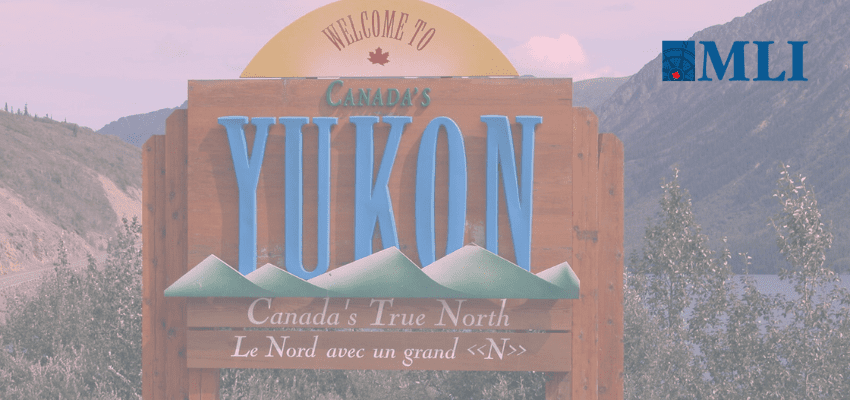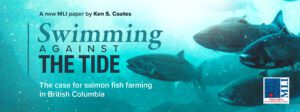By Ken Coates and Ranj Pillai, February 24, 2025
Canada’s Arctic policy has long been founded on delayed and partial responses to American challenges. It started with the Klondike Gold Rush in 1897-98, when the arrival of tens of thousands of American stampeders threatened Canada’s tenuous hold on the Far Northwest. It hit again in 1942, when the United States launched the construction of the Alaska Highway and other Northwest defence projects in a region almost devoid of effective Canadian governance.
The pattern continued after the Second World War, as Canada joined in developing radar defence systems during the Cold War and responded, again half-heartedly, after the American oil tanker SS Manhattan navigated the Northwest Passage in 1969 to test using the seaway to take Alaskan oil eastward. Canada has maintained this approach, scrambling to overcome decades of neglecting national defence in the Arctic in a desperate attempt to head off Donald Trump’s aggressive demands.
The Liberal government, or more accurately, Liberal leadership candidates Chrystia Freeland and Mark Carney, have had conversion experiences on Arctic defence, attempting to address American demands to increase military spending and improve Canada’s Arctic security. Conservative Leader Pierre Poilievre provided a detailed plan that included additional icebreakers, greater support for the Canadian military and an armed forces base in Iqaluit. In the low-stakes card game of Canadian defence planning, Mr. Poilievre’s play is the equivalent of betting the house on a bold Arctic gambit.
It need not have been this way. The Canadian Armed Forces have developed a variety of Arctic defence plans over the years, although they were typically underfunded and soon forgotten. The U.S. long prodded Canada to take a more active role in Arctic security, with NORAD providing a platform to modernize an impressive continental defence system.
More recently, the Northern Territories and Indigenous nations have pushed hard for a more internationalist and circumpolar approach to Canadian policy. The Yukon has taken the lead, creating the Yukon Arctic Security Council and the Canadian Institute for Arctic Security, encouraging the Department of National Defence to establish a presence in the territory, and attracting private-sector and international interest in Northern defence.
The Conservatives’ Arctic plan is an important conversation starter, but it is not the final word. Northern governments work in close collaboration with Indigenous peoples and co-develop key policy initiatives, aligning federal spending with investments in urgent regional needs. Iqaluit, to use Mr. Poilievre’s plan as an example, has pressing requirements for an improved water supply, proper waste management, and key investments in local infrastructure and housing, all of which would have to be developed alongside any new military facility. Patchwork initiatives – a few airplanes here, a small port there, surveillance upgrades in a few locations – are short-term political palliatives and are not a replacement for a well-considered, carefully implemented Arctic strategy.
The painful, long-standing problem in Canada is that southern Canadians do not care much about the Far North or Arctic defence. In general, and like climate change, the protection of Canada’s Northern flank is primarily of theoretical concern but not worthy of large and sustained investment. When the U.S. gets frisky, or when Russia gets more aggressive or China more assertive, Canadians are temporarily intrigued and even mildly concerned. They demand attention be paid to the Arctic, but are usually satiated by the release of a defence strategy and a few photo opportunities.
Canada has coasted on America’s military coattails in the postwar era. Under Mr. Trump, Canadian free-riding will no longer be tolerated. Like our circumpolar partners – Finland, Norway, Sweden, Iceland, Denmark and the U.S. – Canada must now develop a sustainable Arctic defence establishment that is co-ordinated with the efforts of regional governments to bring infrastructure and services up to standard.
The overly quick response to Mr. Trump’s demands for the expansion of the Canadian military must be replaced, in short order, with a regionally effective approach to improving the country’s military presence in the Far North. This strategy must be prepared in full partnership with the Yukon, Northwest Territories and Nunavut; it requires extensive consultation with the First Nations, Inuit and Métis in the North. The proper approach would co-ordinate Northern infrastructure and military needs to improve public services across the Arctic.
For generations, Canada has struggled to find its way in the Far North. The legacy of state paternalism, bursts of interest followed by years of neglect, and the marginalization of Indigenous peoples must now be replaced by a commitment to the co-production of a Northern strategy and the creation of a region that capitalizes on its rich human and natural resources. From a rough and uncertain start hatched in the wake of Mr. Trump’s assertiveness, a confident and more influential North can finally emerge.
Ranj Pillai is the Premier of Yukon.
Ken Coates is the director of Indigenous affairs at the Macdonald-Laurier Institute.







